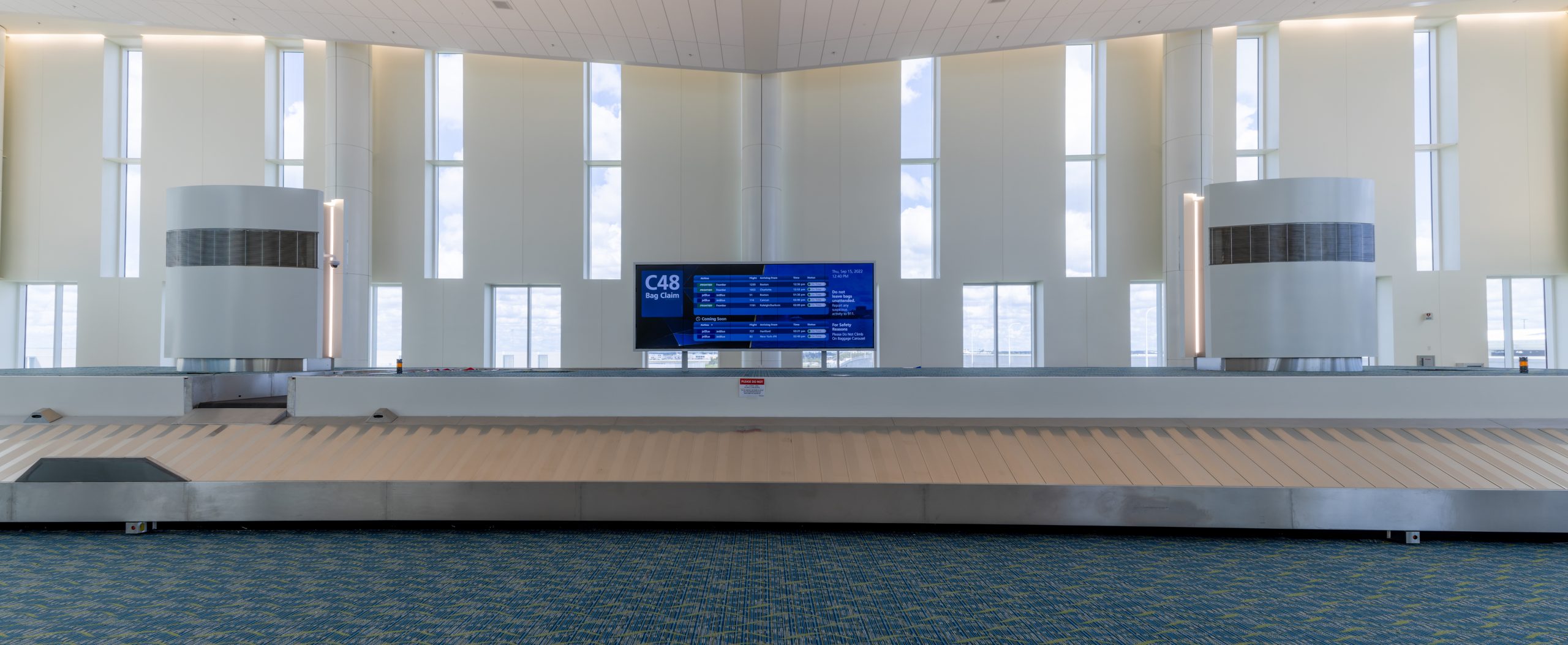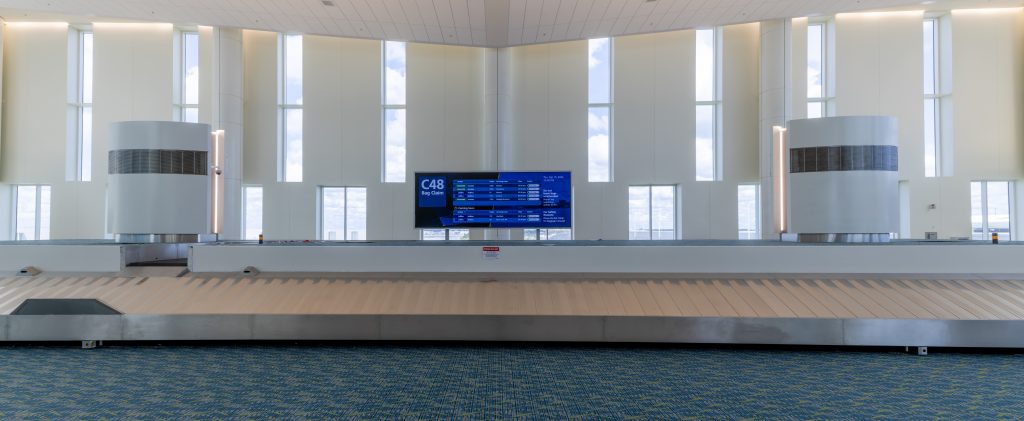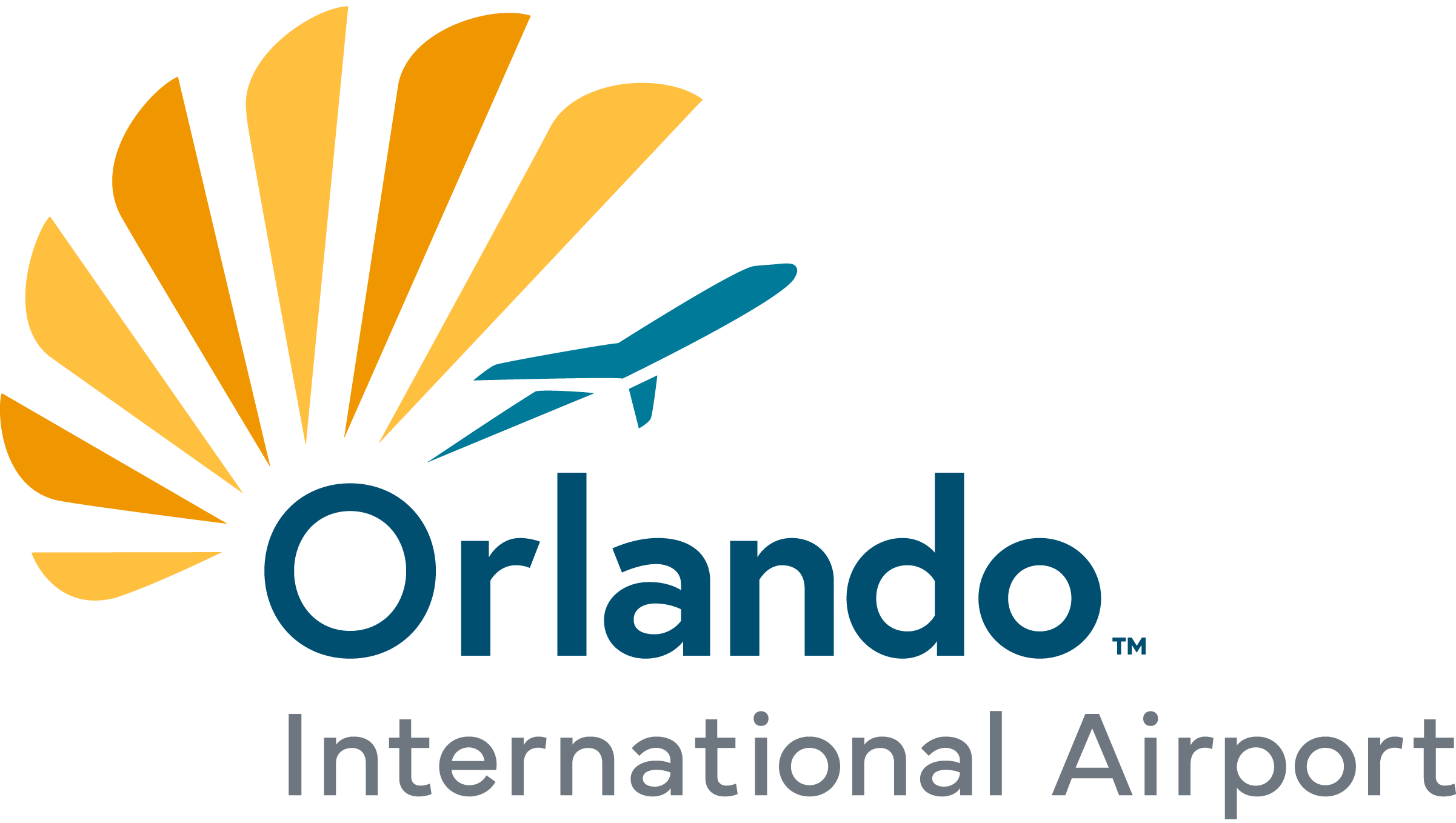
To expedite waiting times for luggage and increase passenger convenience, the Greater Orlando Aviation Authority has a number of improvements under development that will make baggage handling at Orlando International Airport more efficient.
BACKGROUND
When the current airport complex opened in 1981, the original design of MCO’s baggage handling system was more than adequate to handle passenger demands. Following 9-11, new safety and security measures took precedence within the aviation industry – including Baggage Handling Systems (BHS).
Several modifications to the MCO baggage system were implemented, and there have been updates in the ensuing years. Today, the system – especially with the additional passenger volume – does not operate at the standards GOAA would like for a world-class airport.
MCO passenger volume has grown exponentially. In 2019, the airport welcomed 50M visitors; in 2023, nearly 58 million passengers passed through the airport’s corridors. In 2024, airlines at MCO cumulatively checked nearly 7,000 more departing bags each day than in 2022. Baggage handling is always a partnership between the airport, airlines, Transportation Security Administration (TSA), which does bag screening, and other internal stakeholders.

NEAR-TERM SOLUTIONS
The Board adopted a policy in September 2024 for an Express Service Provider (ESP) to meet operational needs. GOAA previously entered into an ESP agreement in which the vendor and its sub-contractors covered as much as 15% of the total baggage that MCO processed (mainly from cruise passengers). New ESP operations will help to bring better efficiency by moving outbound bags from resorts and hotels to a Remote Screening Facility. This will decrease the volume of bags being processed in one area, improving flow.
A service provider began working with a popular resort and airline in Spring 2025. The bag check-in service will help to reduce the volume of outbound bags at Orlando International that need to go through TSA Security all at once, improving efficiency and flow for all passengers.
MIDTERM SOLUTIONS
The TSA is responsible for upgrades to physical screening equipment within the baggage handling system, or in areas called pods – where screening takes place.
Several pods are undergoing upgrades, including Pod E, which both the TSA and Aviation Authority share responsibility.
The GOAA Board recently approved an agreement for a contractor to improve technology in Pod E, which will bring upgrades to the ethernet, IT and encoder equipment.
The TSA’s move to upgrade Pod E, and other pods, will help all partners to move passenger baggage with better productivity.

LONG-TERM SOLUTIONS
Ultimately, the infrastructure for the Baggage Handling System will undergo a major renovation. The project, included in the current Capital Improvement Plan (CIP), is estimated to cost $652 million.
This project will complement the multi-million-dollar plan to renovate Terminals A and B. The new system will allow MCO to better cater to its wide cross-section of tourists and conference attendees, most of whom produce an unusual baggage mix. Based on industry observations and insights, MCO processes more golf bags, car seats and baby strollers than any other airport in the world. Orlando International is fortunate to have productive working relationships with its partners as all parties work to upgrade baggage handling processes.

